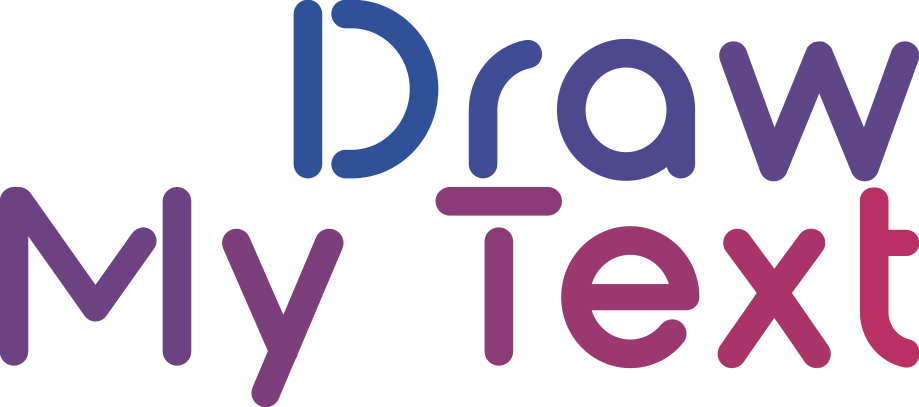
Art in the Age of Algorithms: Generative AI’s Role in Creative Industries
January 12, 2024
How to Get Started with GANs: A Step-by-Step Tutorial
January 13, 2024
Hi there! If you’re as intrigued by the rapid advancement of artificial intelligence as I am, you’ve probably heard a thing or two about generative AI. It’s the talk of the town, and for good reason. However, with all innovations come potential pitfalls, and today, we’re going to explore one of the most burning questions: Is Generative AI a threat to your privacy? Let’s dive into some expert insights and get to the bottom of this crucial topic together.
Generative AI, renowned for its ability to create content that’s nearly indistinguishable from human-made work, is a game-changer. But as impressive as this technology is, it’s vital to consider the implications on our personal privacy. From deepfakes to synthetic data, we must weigh the benefits against potential risks. And don’t worry – I’m here to guide you through all this in an engaging and reader-friendly way!
Before we embark on this journey, remember to stay educated and vigilant. Generative AI is a powerful tool, and with great power comes great responsibility, especially concerning our data privacy. So, let’s not only get informed but also have a bit of fun while at it! 😊
Is Generative AI a Threat to Your Privacy? Exploring the Evidence
When it comes to our digital lives, privacy is paramount. Generative AI’s capabilities extend beyond creating engaging content to potentially generating sensitive information that mimics real data. This imitation game can have serious privacy implications if not handled correctly.
Let’s consider deepfakes, for instance. These audio or video clips generated by AI can mislead, defame, or even incriminate individuals by depicting them in fabricated scenarios. Similarly, generative models like GPT-3 produce compelling text that could, in theory, replicate personal writing styles, leading to identity mimicry. These examples clearly show that data privacy in generative AI is not just a buzzword—it’s a legitimate concern.
But fear not! There is ongoing research and legislative action aimed at mitigating these risks. Tools for detecting deepfakes, regulations like GDPR, and ethical AI frameworks are part of the concerted effort to shield our privacy from unwanted AI intrusions. It’s about finding that sweet spot where innovation meets responsible use, and that’s a journey worth taking together.
Data Privacy in Generative AI: Safeguarding Our Digital Selves
Data privacy in generative AI isn’t just a technical issue; it’s about protecting the very essence of who we are online. Our digital footprints, if not properly secured, can become training data for AI models. This data can be anything from our pictures, to our speech patterns, to our behavioral preferences. And the question then becomes, how do we use this amazing technology without falling victim to privacy breaches?
To ensure privacy, we must be proactive. This means opting for platforms that prioritize security, understanding the terms of data usage, and advocating for transparency in AI practices. It’s also crucial to support organizations that actively work to improve AI ethics. For instance, partnerships that build safe and fair AI practices are instrumental in this endeavor.
While the onus is partially on us as users to protect our digital identities, developers and companies providing AI services bear a significant responsibility. They must embed privacy-preserving features, such as differential privacy and federated learning, into their technologies right from the design stage. This is not just about avoiding fines or bad press—it’s about winning users’ trust in a future shaped by AI.
DrawMyText: Combining Creativity with Privacy
I’m especially excited to talk about our premium text-to-image generation platform, DrawMyText. Here, we stand at the intersection of generative AI and your creativity, all while keeping your data under lock and key. Our platform is designed for you to convert your words into vivid images without compromising your privacy.
With affordable pricing and top-tier features, DrawMyText offers a sanctuary for your ideas to flourish. Every subscription helps us invest in the best privacy practices, making sure that your creations – and by extension, your data – remain yours and yours alone. Whether it’s the occasional image you need or a commercial bulk, we have all the options covered. Consider giving it a try – not only will you power up your content, but you’ll also be part of an ecosystem that values and protects your privacy.
So, if you’re interested in exploring a cutting-edge AI tool without trading in your peace of mind, sign up for DrawMyText today. Unlock the power of generative AI while safeguarding your deepest digital secrets. Now that’s a duo worth subscribing to!
FAQ: Unwrapping the Mysteries of Generative AI and Privacy
What is generative AI, and why should I be concerned about privacy?
Generative AI refers to a class of artificial intelligence that can generate new content, based on patterns it learns from vast datasets. Privacy concerns arise because if AI can create convincing fake content, it can potentially misuse personal data to create deceptive or invasive materials. Ensuring AI is developed and applied ethically is key to preventing privacy infringements.
Can AI really replicate my personal style and information?
Highly advanced generative AI models can, indeed, mimic personal writing styles, speech, and even imagery. While this is a testament to the tremendous progress in AI, it’s also a sign that we need robust privacy measures to prevent identity theft or misuse of personal likenesses.
What are some measures I can take to protect my privacy in the age of AI?
To safeguard your data, be mindful of the platforms you use, read privacy policies carefully, and support products and services that are transparent about their AI practices. Always stay informed about the latest developments in AI and privacy protection.
How are companies working to ensure the privacy of my data?
Responsible companies are implementing technologies that enhance privacy, such as encryption, anonymization techniques, and ethical AI frameworks. They’re also investing in research to develop even more sophisticated privacy-preserving AI applications.
Where can I learn more about generative AI and privacy?
There are numerous online resources from reputable organizations, academic research papers, and articles that delve into this topic. A great place to start is the AI Expertos website, which offers articles discussing the latest in AI ethics and privacy.
Parting Thoughts: Safeguarding Our Digital Future Together
We’ve journeyed through the landscape of generative AI and honestly, it’s been enlightening! Privacy is a multifaceted issue, and it’s clear that as individuals and as a society, we play a vital role in protecting it. Our actions, advocacy, and the technology we choose to support will all contribute to how this field shapes up.
As for me, I’ll continue delving into the world of AI, sharing knowledge and insights to keep you informed and empowered. Remember, our digital future is only as bright as we make it – let’s be vigilant, curious, and innovative, while never compromising on our right to privacy. Stay safe in this digital era, and keep exploring the incredible potential of generative AI!
If this article got your gears turning, consider subscribing to stay updated on all things AI and privacy. Together, we’ll navigate this brave new world, eyes wide open and privacy intact. Until next time! 😄
Keywords and related intents:
Keywords:
1. Generative AI
2. Privacy
3. Deepfakes
4. Synthetic data
5. GPT-3
6. Data privacy
7. GDPR
8. AI ethics
9. Differential privacy
10. Federated learning
11. DrawMyText
12. Text-to-image generation
13. AI legislation
14. Privacy-preserving features
15. Digital identity
16. Identity theft
17. Privacy policies
18. AI Expertos
19. AI frameworks
20. Encryption
Search Intents:
1. Understanding the privacy risks of generative AI.
2. The implications of deepfakes on personal privacy.
3. How GPT-3 could potentially mimic personal writing styles.
4. Measures to protect privacy in the digital age with AI technologies.
5. Laws and regulations such as GDPR affecting AI and privacy.
6. Ethical considerations in the development and use of AI.
7. Technologies for preserving privacy in AI, like differential privacy and federated learning.
8. Reviewing the privacy focus of DrawMyText’s text-to-image generation service.
9. Steps individuals can take to safeguard their digital identity against AI threats.
10. Resources and platforms to learn more about the intersection of generative AI and privacy.
#data privacy in generative ai
#Generative #Threat #Privacy #Expert #Insights #Revealed


